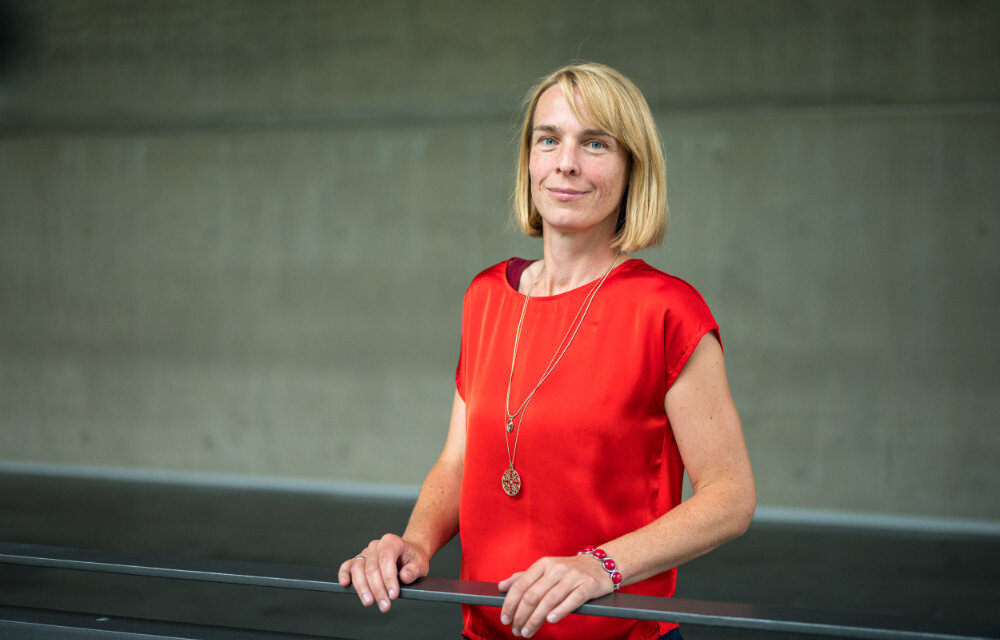Computer science teaching: Professor Verena Wolf heads new expert panel

Knowledge and skills in the field of computer science and digital media are among the key qualifications in the digitalized world – making them increasingly important for children and young people. For the 2023/24 school year, the Ministry of Education and Culture (MBK) is therefore planning to introduce the mandatory subject of computer science for all students starting in grade 7 at community schools and high schools. An expert forum is to develop guidelines for the concrete design of the new subject and began its work at the beginning of November. Computer science professor Verena Wolf chairs the panel.
In preparation for the introduction of computer science as a compulsory subject at secondary schools, the Saarland Ministry of Education and Culture has convened an expert forum on computer science. Members include scientists as well as experts from schools, such as state subject advisors and experienced teachers. The forum is to develop a report and guideline recommendations for the design of the new school subject by spring 2022. From these, a computer science curriculum commission will then develop the specific curriculum content. In contrast to media education, which is already taught on a cross-curricular basis, the compulsory subject of computer science is intended to teach the fundamental core principles of the subject.
Education Minister Christine Streichert-Clivot: “Children and young people are growing up in an increasingly digitized world. Dealing with digital technology and digital media is a natural part of their lives. We want to reflect this reality of life across the board in our community schools and high schools, which is why we are introducing computer science as a new compulsory subject. At school, children and young people must acquire the knowledge and skills they need to navigate the digital world well and safely and to use digital technology in a targeted manner. In order to develop guidelines for the new subject, the expert forum headed by Prof. Dr. Verena Wolf began its work today. I am very grateful for the commitment of all those involved.”
Prof. Dr. Verena Wolf, Department of Computer Science at Saarland University: “Through computer science education, we prepare students for a life that takes place more and more in the digital world. They become more competent in their actions and judgments, for example when it comes to handing over personal data or the use of new technologies such as artificial intelligence. Computer science education in all types of schools also makes an important contribution to educational equity in our country and gives children a realistic picture of computer science-related professions.”
The introduction of computer science as an independent subject from grade 7 onwards will lead to an additional demand for appropriately qualified teachers, which is to be covered successively through training and continuing education. As of the 2020/21 winter semester, students in the new “Computer Science PLUS” teaching degree program at Saarland University (UdS), which was designed and is the responsibility of Prof. Dr. Verena Wolf, can also combine computer science as a teaching subject with subjects such as philosophy/ethics, chemistry, French, history and sports, and – unlike in the past – not only with mathematics. This will make the teacher training program in computer science more attractive overall and adequately reflect the importance of the subject in today’s everyday life.
With the 2021/22 school year, teacher training has already entered a new stage: After successfully completing an advanced training course at the State Institute for Pedagogy and Media (LPM) in cooperation with Saarland University (UdS), teachers at community schools and high schools will have the opportunity to teach computer science at the lower secondary level. The kick-off of the two-year training program took place in September. Forty-eight teachers with different professional backgrounds are participating in the first training session. A second training group will start in the second school semester of 2021/22.
Until now, students in the Saarland have been able to choose computer science as an elective subject in the introductory phase of the upper secondary school and, since the 2019/20 school year, have been able to take it as both a basic and an advanced course in the main phase of the upper secondary school. At Saarland high schools that have a computer science or MINT branch, computer science is already taught from grade 8. At the community colleges, however, the subject of computer science is not yet part of the compulsory curriculum, but can be taken as a compulsory elective in combination with the subject of careers and business or as part of a study group.
Background Saarland Informatics Campus:
800 scientists and around 2100 students from more than 80 nations make the Saarland Informatics Campus (SIC) one of the leading locations for computer science in Germany and Europe. Five globally renowned research institutes, namely the German Research Center for Artificial Intelligence (DFKI), the Max Planck Institute for Computer Science, the Max Planck Institute for Software Systems, the Center for Bioinformatics and the Cluster for “Multimodal Computing and Interaction”, as well as Saarland University with three networked departments and 24 degree programs cover the entire spectrum of topics in computer science.
